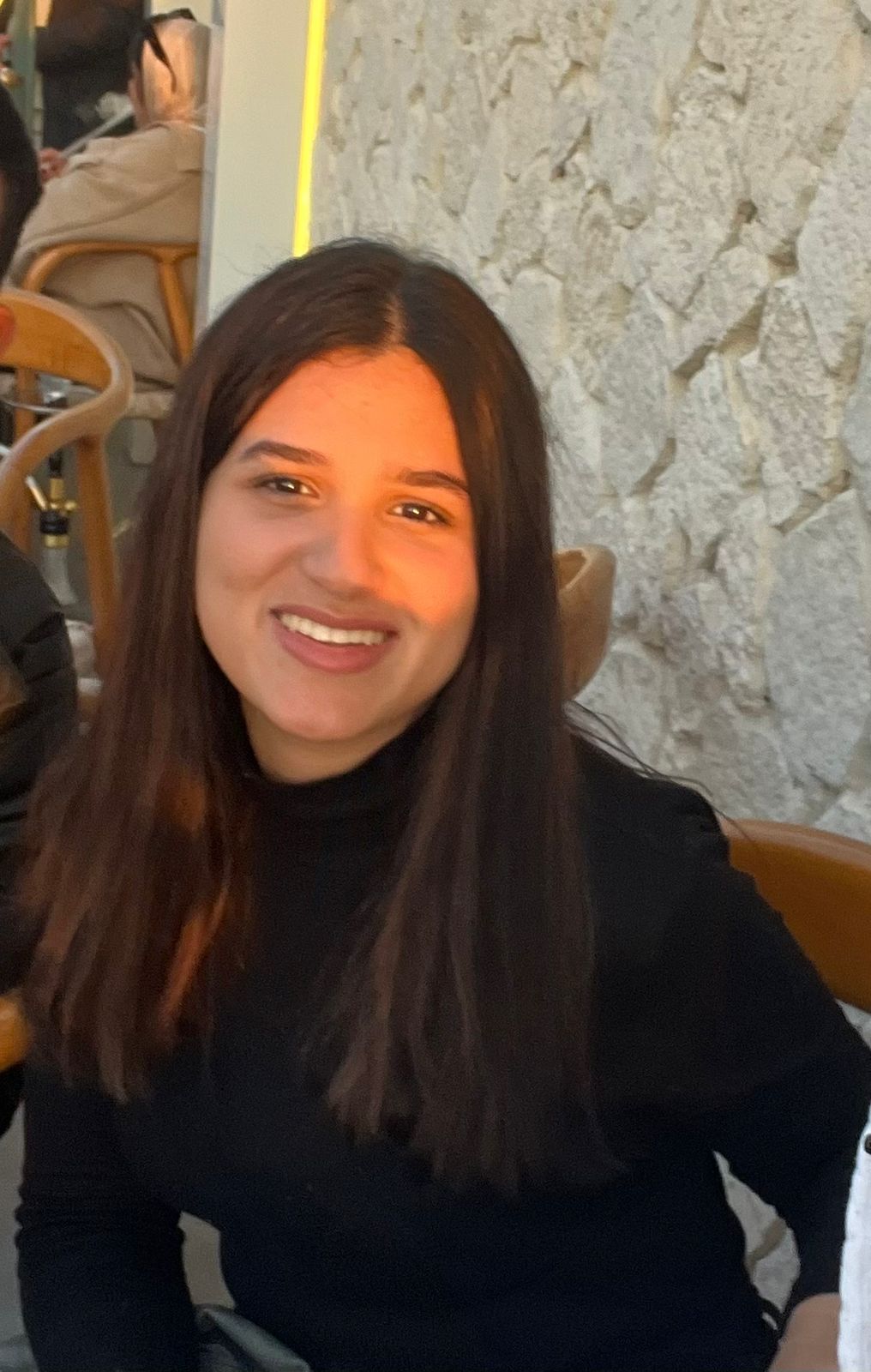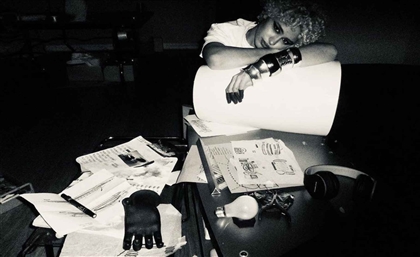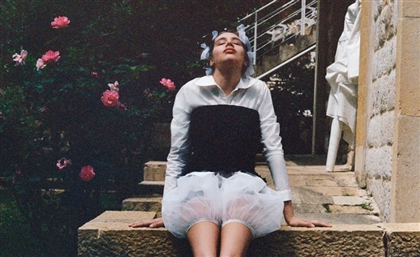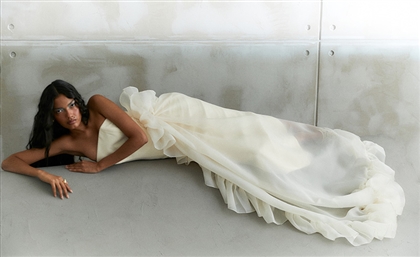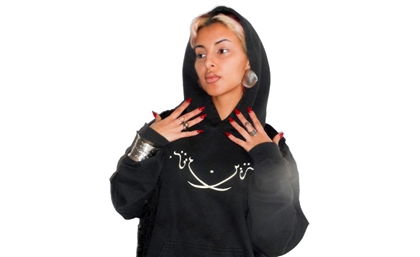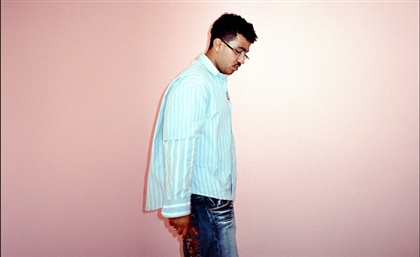Sylwia Nazzal Designs for a Body That Demands Space
Palestinian designer Sylwia Nazzal's colossal puffers and keffiyeh-lined hoodies speak louder than quiet luxury ever could — they’re about identity, visibility, and the politics of simply existing.
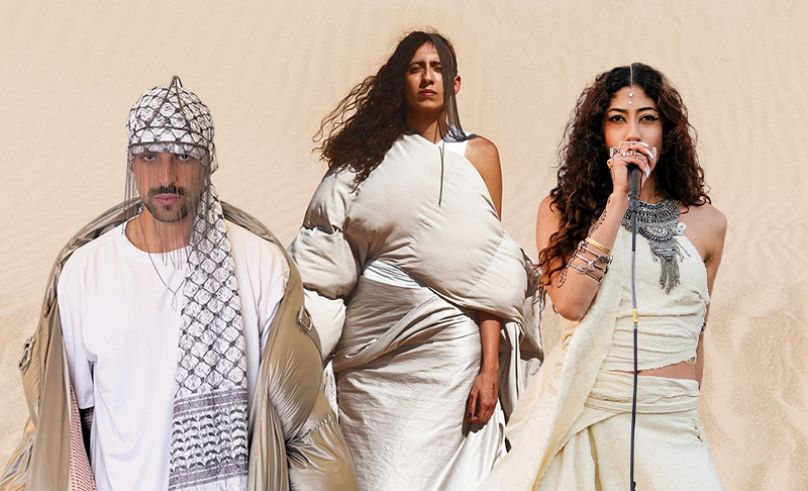
Originally published on November 18th, 2025
Somewhere between Paris Fashion Week, a carousel of recycled references and “quiet luxury” that’s anything but quiet, and your algorithm’s endless carousel of beige, the fashion industry misplaced its nerve. Then along comes a designer who reminds you that fashion can still roar. Nazzal Studio’s colossal, bow-wrapped puffers and keffiyeh-trimmed hoodies have the unapologetic energy of a rallying cry. For founder 23-years-old Sylwia Nazzal, born to a Palestinian family in Jordan, “taking up space” is a philosophy stitched into every seam; a declaration that identity isn’t seasonal, and silence isn’t chic.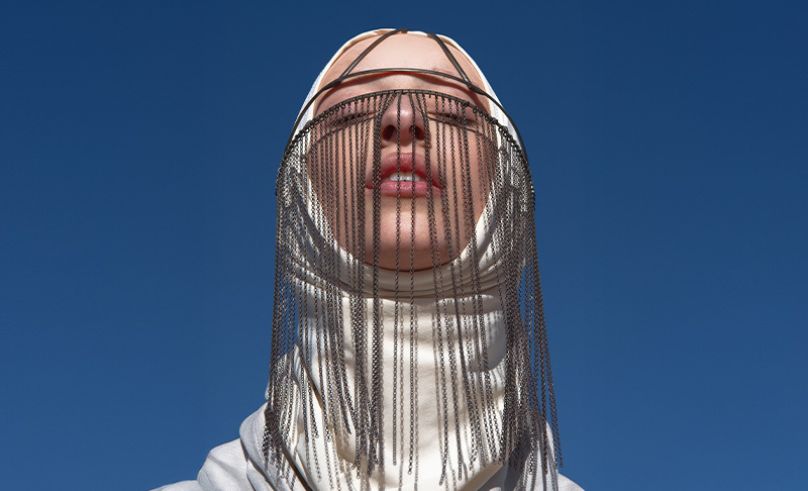 Fashion entered Nazzal’s life unexpectedly: “I grew up with a strong sense of cultural awareness and responsibility,” she tells SceneStyled. “From a young age, I always knew I wanted to be creative but I never knew it would be ‘fashion’ until much later.” The path revealed itself during university, when a heritage project sparked a deep connection to her Palestinian roots. “I loved working on a piece that referenced Palestinian heritage,” she recalls. “Later I realised I’ve always been very outspoken and political in everything I’ve done and I enjoy it.”
Fashion entered Nazzal’s life unexpectedly: “I grew up with a strong sense of cultural awareness and responsibility,” she tells SceneStyled. “From a young age, I always knew I wanted to be creative but I never knew it would be ‘fashion’ until much later.” The path revealed itself during university, when a heritage project sparked a deep connection to her Palestinian roots. “I loved working on a piece that referenced Palestinian heritage,” she recalls. “Later I realised I’ve always been very outspoken and political in everything I’ve done and I enjoy it.”
The foundation of Nazzal Studio was laid during her graduate thesis, 'What Should Have Been Home' (2022–2023), a collection that used fabric as language— exploring displacement, belonging, and memory. Since then, her work has evolved into an unflinching statement on cultural identity and ethical creation.
From that academic crucible emerged a brand with a steadfast philosophy. "At the heart of Nazzal Studio is the belief that fashion can be both artistic and socially conscious,” Nazzal explains. Her priorities are ethical production, collaboration with marginalised communities, and work that carries cultural meaning. The goal is both simple and profound: "I want to educate in this process, and change the way people view the Arab world." This intent is physically manifested in her silhouettes. They are oversized, dramatic, granting the body a new kind of architecture. "Oversized forms allow for expressive, almost sculptural storytelling," she explains. "They carry presence, give space for the body to interact with narrative." Then she adds, with a designer’s understanding of audience, "They also force you not to look away."
This intent is physically manifested in her silhouettes. They are oversized, dramatic, granting the body a new kind of architecture. "Oversized forms allow for expressive, almost sculptural storytelling," she explains. "They carry presence, give space for the body to interact with narrative." Then she adds, with a designer’s understanding of audience, "They also force you not to look away."
Nazzal’s process begins with archival, material and emotional research. “Each silhouette and textile is considered for its ability to convey memory, tradition, and narrative,” she explains. One of her signature pieces —a vast garment covered in coins— revives an old Palestinian custom. “It’s a tradition to adorn clothing or headpieces to protect the wearer from the evil eye,” she says. “To work with refugee women and create one giant piece full of these coins allows for cultural and historical significance while also being ethical, giving back to my community.”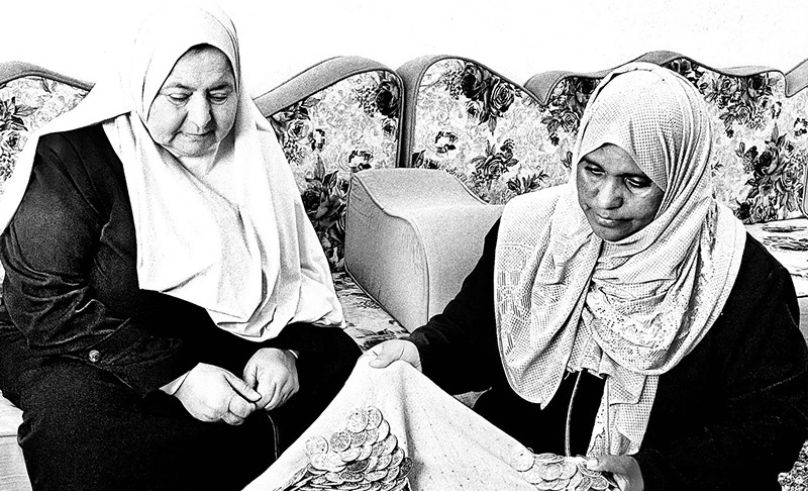 This collaboration is the living heart of her work. It bridges the gap between concept and craft, between past and present. "Working with skilled craftspeople, particularly refugee women, allows the work to carry authenticity," Nazzal says. "Their knowledge and hands literally embed stories and traditions into the garments."
This collaboration is the living heart of her work. It bridges the gap between concept and craft, between past and present. "Working with skilled craftspeople, particularly refugee women, allows the work to carry authenticity," Nazzal says. "Their knowledge and hands literally embed stories and traditions into the garments."
Her philosophy sits firmly at the intersection of art, activism, and fashion.“Nazzal Studio operates at the intersection of these fields,” she says. “Each garment carries aesthetic value, artistic intention, and a socially conscious message.”
That commitment comes at a cost. Ethical production takes time, money, and stubbornness. “It’s patience, attention to detail, and fair practice. All of which clash with fast fashion’s speed,” she admits. But compromise has never been part of the vocabulary. “We prioritise integrity over commercial trends. While we operate in a market context, political and cultural expression guide every decision. The work must remain meaningful rather than purely transactional.”
That belief is a cultural service. “I want people to either feel uncomfortable or empowered,” Nazzal says. “I want them to be inspired by their own culture and heritage, and I want them to learn something new. Art should make you feel something.”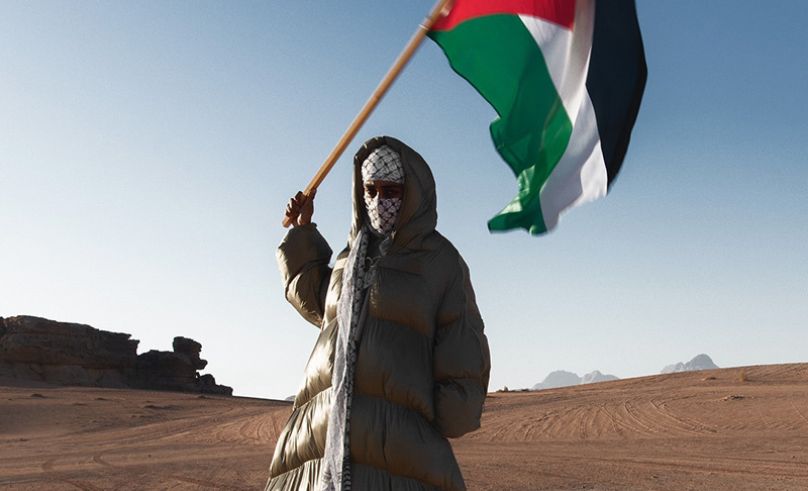 In an industry that still struggles to make space for Palestinian voices, her defiance feels urgent. “Palestinian voices are emerging strongly, but the space is still limited and often filtered through external narratives,” she says. “There’s growing interest in authentic storytelling, but it requires continued advocacy and visibility.”
In an industry that still struggles to make space for Palestinian voices, her defiance feels urgent. “Palestinian voices are emerging strongly, but the space is still limited and often filtered through external narratives,” she says. “There’s growing interest in authentic storytelling, but it requires continued advocacy and visibility.”
And visibility, for Nazzal, is the protest. 'What Should Have Been Home' gained attention in the wake of 2023’s events, when global audiences were finally forced to reckon with the political and emotional weight of Palestine. “Seeing the collection resonate globally, and knowing it gave voice to experiences often overlooked, reaffirmed the purpose of Nazzal Studio,” she reflects.
For now, she continues to build a practice that privileges substance. “I hope to contribute critical dialogue, cultural memory, and ethical practices,” Nazzal says, “showing that fashion can be a medium for storytelling, community engagement, and political reflection.”
When asked what she’d like Nazzal Studio to be remembered as, she shares, “For centring heritage, integrity, and artistic intention,” she says. “For creating work that carries meaning beyond aesthetics and commerce.”
- Previous Article American Label Cole Haan Opens Three Stores in Egypt
- Next Article Benzene: The Palestinian Satirical Label Fueling Chaos Kids

